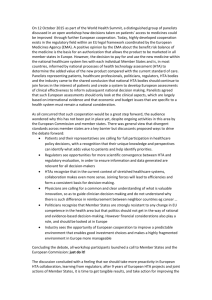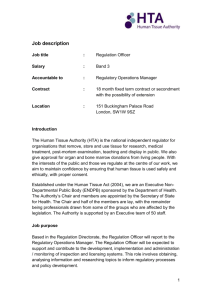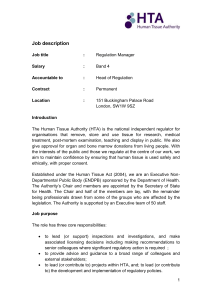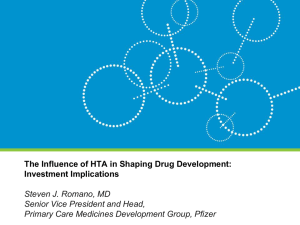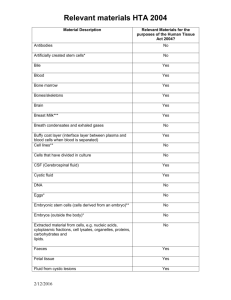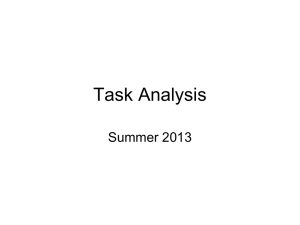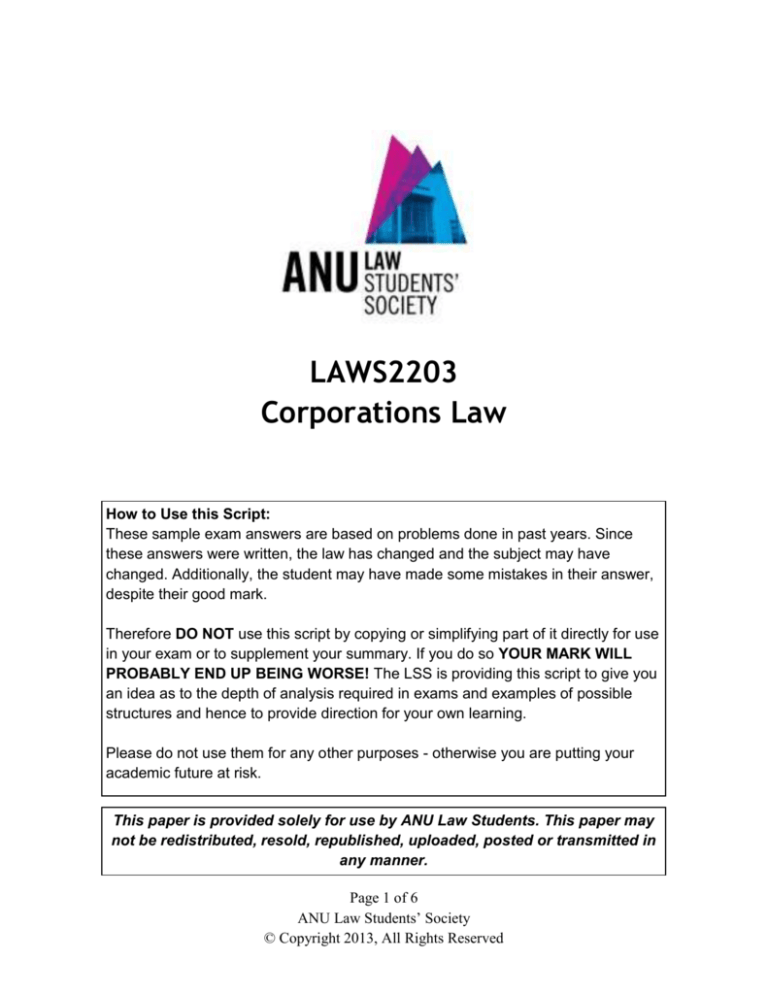
LAWS2203
Corporations Law
How to Use this Script:
These sample exam answers are based on problems done in past years. Since
these answers were written, the law has changed and the subject may have
changed. Additionally, the student may have made some mistakes in their answer,
despite their good mark.
Therefore DO NOT use this script by copying or simplifying part of it directly for use
in your exam or to supplement your summary. If you do so YOUR MARK WILL
PROBABLY END UP BEING WORSE! The LSS is providing this script to give you
an idea as to the depth of analysis required in exams and examples of possible
structures and hence to provide direction for your own learning.
Please do not use them for any other purposes - otherwise you are putting your
academic future at risk.
This paper is provided solely for use by ANU Law Students. This paper may
not be redistributed, resold, republished, uploaded, posted or transmitted in
any manner.
Page 1 of 6
ANU Law Students’ Society
© Copyright 2013, All Rights Reserved
Semester 1 2013
Part A
The Duty of Care, Skill & Diligence (DoC) under s180(1) of the CA and the Common Law (CL)
may have been breached.
A’s Director’s Duties (DD) – Breach?
There exists a serious case for breach of DD. The CL and statute law are the same re: DoC. Thus
we find the standard in Daniels v Anderson (1995) which requires D’s to take reasonable steps to
place themselves in a position to guide & moniter the management of the co. including ensuring
they have knowledge of the business; keeping informed of activities & remaining familiar w. the
financial accounts of the co.
As the CEO, A also has a higher standard of care as he is an exec-D (similar to ASIC v Rich).
ASIC v Adler asks for an objective standard of care – the reasonable person w. same
knowledge/expertise. Thus we can say that A should be held to a higher standard due to his
position on the board and experience (large co. operating since 2008). It is likely A would be
found in breach of his DD of Care for his failure to keep familiar with the financial accounts
(error was only discovered by an employee).
Non-Exec DoC
Under Daniels v Anderson and numerous other cases e.g. Friedrich, non-exec D’s owe the same
standard of care. As established, the co. is a large, established and ‘successful’ co. with an
experienced board of D’s (Daniels v Anderson). It is likely the non-exec D’s will also be found
in breach of their DoC like A. The standard of skill cannot be used to lower duty – only raise.
9.5
b)
Reliance
The defence of reliance is applicable because the test for DoC is reasonableness. S189 states that
if a D relies on information, they must have a reasonable belief that the person giving advice is a)
reliable, b) competent, c) acting within their authority and d) the reliance must be in good faith
(GF) & D must have made an independent assessment of info or advice. Here, a), b) and c) are
satisfied as the accounting dep’t is likely an established & reliable dep’t of a large/successful co.
Page 2 of 6
ANU Law Students’ Society
© Copyright 2013, All Rights Reserved
However as in ASIC v McDonald, the D’s had not made an independent assessment of the info
and so reliance failed. Similarly, it can be seen that CC’s D’s have failed to notice the error and
probably didn’t need to make an independent assessment of the info. S189(d) is not satisfied so
the defence fails.
2.5
c) Remedies
ASIC, under the CA, in established a breach of DD, could apply for a declaration or
contravention under s1317J(1) & (4). Following that, they may seek a pecuniary penalty order
under s1317G of an amount up to $200,000 or a compensation order under s1317H, or a
disqualification order under s206C. These are all civil penalty provisions under the CA and apply
for DD’s.
2.5
Part B
a) Solvency
Under s95A of the CA, a person is solvent if they can pay debts as & when they fall due. ✓ A
person who is not solvent is insolvent. This adopts a cash flow test. (Powell v Fryer). The facts
state that Citybank has contacted HTA about overdue loans. Georgina (G) who is the CFO of
HTA also admits that they are struggling to meet other debts too. On these facts, HTA would
under s95A of the CA is NOT solvent.
2.5/5
b)
The purchase of cars may be an uncommercial transaction (UT) under s588FB. ✓ s588FB(i)
requires a reasonable person test regarding a) benefits to co. entering transaction (T) b) the
detriment to co. entering T, c) the respective benefits to other parties to the T & d) ✓and any
other relevant matters. Here we have a situation of a co. (HTA) who sold property for well below
its value. The facts state the cars were bought by CC at a substantial discount. Thus we can say
HTA did not have appropriate regard to the detriment/benefits of the T & thus the T was
uncommercial.
We now need to see if the UT was an insolvent transaction (IT) under s588FC ✓ & thus voidable
under s588FE and thus invalid.
IT is found when the co.’s T entered into effect when the co. was insolvent/becomes insolvent
due to the T. s588FC. The facts show that the UT was entered into ‘recently’*, suggesting no
longer than the applicable period of 2 years for UT. ✓ i.e. the ‘relation back day’ s9 test is
satisfied. Thus under s588FC, the UT is an IT and thus voidable under s588FRC and not valid.
Page 3 of 6
ANU Law Students’ Society
© Copyright 2013, All Rights Reserved
Defences under s588FG?
c)
3.5/5
*marker underlined the word, ‘recently’
The share purchase may have breached the financial assistance (FA) requirements of s260A ✓of
the CA. FA is only legitimate if giving the assistance doesn’t materially prejudice the interests of
the co./its SH’s, or the co.’s ability to pay it’s creditors. (s260(a)(i). ✓
Material Prejudice.
ASIC v Adler requires us to look at the whole T for material prejudice to creditors. ✓ Here, we
know the T involved a substantial discount given to CC which will have decreased HTA’s ability
to pay its creditors. Here, we know the T involved a substantial discount given to CC which will
have decreased HTA’s ability to pay its creditors. Further whilst no specific date is given re: the
date of the share purchase, the facts show that HTA has already become aware of a downturn in
profits & its over all financial position. ✓
Such indicates that HTA has materially prejudiced the co.’s ability to pay its SH’s and thus failed
s260A(i)(a)(ii). However, assistance may be exempt under s260C in cases of ordinary
commercial dealings. This share purchase is arguably not such a dealing as we already have
established the T was a UT. S260 will not apply. ✓
Yet despite failing to comply with s260A, s260D(i)(a) states that the contravention does not
affect the validity of the acquisition of shares and s260D(i)(b) states the co. is not guilty of an
offence. The purchase is valid despite the breach. Only a civil penalty or criminal penalty may be
imposed under s260D(2) & (3). ✓ Good!
7.5/10
d)
s9 of the CA defines who is a director. Whilst CC was not appointed as the D of HTA, they may
still be a D if it can be found that they acted as a director (defacto D), or the D’s of HTA are
accustomed to act in accordance with CC instructions or wishes (shadow director). ✓
The case here is analogous to Standard Chartered Bank of Aus v Antico. ✓ Buzzle v Apple?
Court held that a co. can act as the D of another co. as a shadow D. it was found that financial
control was a factor leading to this conclusion. In this case, CC owns 70% of shares in HTA – a
substantial portion of shares and thus has a significant scope of financial control over HTA.
Furthermore, on the facts, it is common practice of the board of CC to review the activities &
accounts of HTA at their meetings. (Standard Chartered Bank of Aus v Antico) as well as
provides ongoing direction to the HTA board on how the company should be run. ✓ It seems
extremely likely that CC will be found to be a shadow D of HTA and thus liable as a D for the
debts of HTA. We can also distinguish this case from Buzzle Operations v Apple Computers Aus
Page 4 of 6
ANU Law Students’ Society
© Copyright 2013, All Rights Reserved
✓ – HTA & CC were not negotiating at arms length & this was not just a relationship regarding
a product. Ultimately CC is likely liable as the D for HTA’s debts.
Well done! 4.5/5
Part C
PC) AA may raise the statutory provisions of s128(1) ✓ of the CA which allows a person who
have dealings with a co. to make certain assumptions in relation to those dealings as listed out in
s129. Specifically s129(3) ✓ re: the assumption about the apparent authority of a D may be
raised by AA. S129(3) is a reflection of the CL on apparent authority so Lord Diplock’s tests in
Freeman & Lockyer ✓apply. 4 conditions to this test.
1. Holding Out
As in Panorama Developments, here, G is the agent and the means by which the HTA’s
representation is being made to AA. She had signed as the MD for HTA and the contract was re:
HTA’s logo on the product. Holding out can be made out.
2.
As G was standing in for Yin (HTA’s CEO), she arguably perhaps has express actual authority,
and if not, implied actual authority. (Hely-Hutchinson v Brayhead). We need further facts,
however the acquiescence of the rest of the board of HTA & AA’s acceptance indicates the case
for G’s actual authority is strong. Thus she had actual authority to manage the business of HTA
in relation to AA’s contract.
3.
AA was likely induced into entering the contract by HTA’s representation. There seems to be
intention from CC to provide a service for HTA upon G’s signing of the contract as the MD of
HTA. ✓
4.
The 4th test is irrelevant because of s124 of the CA. ✓ Thus the assumption of s129(3) is likely
found.
Potential Limitation on s129 assumptions?
S128(4) of the CA states that a person who has dealing with a co. is not entitled to rely upon
s129 assumptions if they knew or suspected at the time of dealings that the assumption was
incorrect. This is a narrow limitation as a person will be found to suspected only if it can be seen
that the person formed a positive opinion that something was irregular about the appointment.
Page 5 of 6
ANU Law Students’ Society
© Copyright 2013, All Rights Reserved
(Northside). ✓ On the facts, AA does not seem to have had any suspicions/knowledge about G’s
authority. It is unlikely that the exception of s128(4) will be found. Thus G probably would not
be able to get out of the contract. ✓ ✓
6.5
Page 6 of 6
ANU Law Students’ Society
© Copyright 2013, All Rights Reserved

